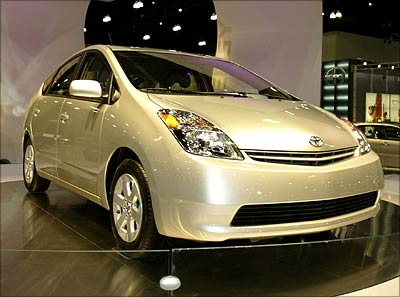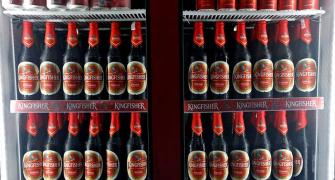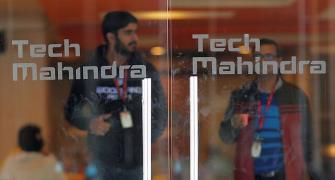 Between Al Gore's movie, an Inconvenient Truth, and the inconvenient truth that gas costs an average of $2.85 a gallon, average consumers are joining the ranks of a long list of celebrities, including The Huffington Post's Arianna Huffington and TV personalities Bill Maher and Ellen DeGeneres, in switching to a hybrid vehicle, powered by a combination of an electric motor and a gasoline-fueled engine.
Between Al Gore's movie, an Inconvenient Truth, and the inconvenient truth that gas costs an average of $2.85 a gallon, average consumers are joining the ranks of a long list of celebrities, including The Huffington Post's Arianna Huffington and TV personalities Bill Maher and Ellen DeGeneres, in switching to a hybrid vehicle, powered by a combination of an electric motor and a gasoline-fueled engine.
And Toyota's plan to sell one million hybrids a year by early next decade suggests hybrids are on their way to mainstream status.
In 2005, Toyota increased production of its Prius hybrid to keep up with the demand for the model, and the automakers' 2007 Camry Hybrid sold 4,268 units in June.
In comparison, the non-hybrid Hyundai Sonata sedan -- one of the top 20 best-selling cars in the U.S. -- sold 11,739 units.
Though the numbers are coming closer to one another and hybrid sales have generally doubled every year since 2000, hybrids represented only 1.2% of total vehicles sold in 2005.
Sure, hybrids are gaining in popularity, but when it comes to all the promises -- ubiquity of energy-efficient vehicles, lower costs over time, and environmental-friendliness -- are hybrids living up to their hype?
Hybrids for all
Despite hybrids' promise of improved gas mileage and lower emissions, hybrids are likely to constitute only a modest portion of all vehicle sales for the foreseeable future, according to a January report from J.D. Power and Associates.
Analysts anticipate that by 2012, hybrid sales volume will have grown from 212,000 in 2005 to 780,000 -- but hybrids will still only represent 4.2% of the overall market.
One explanation for the hybrid's lag behind non-hybrid vehicles is automakers' inability to keep up with the demand. Toyota, the top-seller of hybrids, recently had a waiting list of up to six months for its Prius model. Meanwhile, Honda continues to evaluate its manufacturing capacity. "We are making all we can," said Sage Marie, a spokesman for Honda.
"We continue to adjust manufacturing targets based on demand. Right now the limiting factor is manufacturing capacity."
Savings for whom?
Another reason that hybrids likely have trouble gaining traction in the vehicle market is their cost. Hybrids typically cost $2,500 to $3,000 more than a comparable conventional vehicle.
"It's all about the economics," said Keith Crain, publisher and editor-in-chief of Automotive News. "For hybrids to compete, car manufacturers are going to have to get the costs down."
A federal tax credit, introduced as part of the Energy Policy Act of 2005, offsets some of the initial price differential. The tax credit ranges from $250 for a hybrid pickup like the Chevrolet/GMC Silverado/Sierra to $3,150 for more fuel efficient Toyota Prius. However, once a manufacturer sells 60,000 vehicles of a particular hybrid model, the credit gradually decreases over a period of 15 months until it is discontinued.
Whether hybrid owners can recoup their higher initial investment through savings at the gas pump depends on the model of hybrid they drive and how long they own the vehicle.
"When you factor in the initial investment the average consumer has to have considerably higher mileage to make it payoff. However, if they keep it long enough and they drive it many miles they will in fact save considerably," said Crain.
"Tax credits and absolute financial costs are not the primary issue for people buying a Toyota hybrid," said Cindy Knight, environmental communications administrator at Toyota. "People buying hybrids are concerned about the environment."
Saving the Earth?
But is a hybrid the best personal vehicle choice to demonstrate concern for the environment?
With good design, hybrids can reduce smog pollution by 90 percent or more compared with conventional vehicles, according to The Union of Concerned Scientists. However, not all hybrid vehicle models are equally green.
Burning less fuel releases fewer toxic emissions and there is no doubt that certain hybrid models get substantially better gas mileage than comparable conventional vehicles. The 2006 Toyota Prius gets 60/51 mpg city/highway, which is much better than the 34/40 of the 2007 model of the Yaris, Toyota's smallest compact car.
The 2006 Honda Accord Hybrid, on the other hand, gets 25/34 mpg city/highway -- virtually identical to the 26/34 of the conventional Accord coupe.
While some critics might consider hybrid SUVs the ultimate oxymoron, a vehicle like the Toyota Highlander hybrid or Ford Escape, puts hybrid technology in the hands of people who might not otherwise choose to drive a hybrid. Hybrid SUVs enable people to slightly mitigate their choice to drive a larger car.
"We realized that if we're going to make a difference in terms of dependence on foreign oil and reducing emissions we would have to take our hybrid synergy drive mainstream," said Toyota's Knight. "We want to broaden hybrids' appeal beyond the early adopter or tech fan. We want to appeal to soccer moms and dads."
"I think the trend of putting hybrid engines in large vehicles makes sense. It's important for us to explore options for all fuels and all vehicle sizes," said Automotive News' Keith Crain.
However, Honda has no plans to develop a hybrid SUV. "We've found that hybrid technology is most efficient in small vehicles," said Honda spokesman Sage Marie. "The gains in fuel efficiency are most significant in small vehicle applications."
Not the only green ride
So will hybrids be the cars of the future?
"Anyone who says hybrids are the singular ultimate answer is nuts," said Crain.
Gas-electric hybrids are only one among many alternative vehicle designs. Vehicles have been developed that run on various combinations of fuel systems. Biodiesel, ethanol, hydrogen -- even recycled frying grease -- all have potential as fuels.
In 2003, Bush launched a $1.2 billion initiative to help automakers develop a hydrogen-fueled vehicle. Yet, Paul Erickson, a professor of Mechanical and Aeronautical Engineering at UC Davis who studies hydrogen production and utilization warns affordable hydrogen fuel cell technology is still decades away.
"There's no one silver bullet in terms of green technology," said Marie. "We're continuing to substantially invest in research of other green vehicle options."
"Right now we're in the transition period," said Crain. "In the future, we're going to see hybrids, electrics, diesels, methanol-powered and all sorts of multi-fuel systems for automobiles. There's not a single solution."
(Above) A Toyota Prius hybrid car. Phototograph: Scott Halleran/Getty Images







